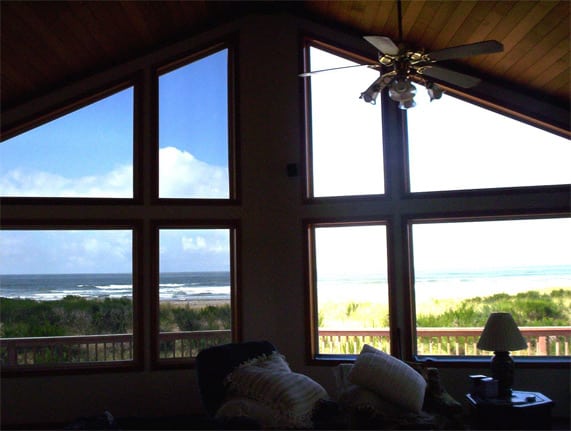Why Residential Window Tint is a Smart Investment for Homeowners
Wiki Article
How Residential Home Window Tinting Enhances Your Home's Energy Performance
Residential window tinting presents an engaging option for house owners looking for to enhance energy effectiveness within their living spaces. By applying specialized movies to windows, it effectively lowers warm transfer, therefore maintaining indoor temperatures and lessening the need for excessive home heating or cooling.Recognizing Home Window Tinting
Understanding window tinting is necessary for homeowners looking for to boost both convenience and energy performance in their living spaces. Residential Window Tint. Home window tinting includes the application of a thin film to the interior or outside surface area of glass windows. This film can substantially regulate the amount of sunshine and warm that gets in a home, thus influencing indoor environment conditionsThere are numerous kinds of home window tinting films readily available, each with distinctive homes. The efficiency of window tinting is usually determined by its Visible Light Transmission (VLT) percentage, which shows just how much light can pass with the movie.
Benefits of Power Effectiveness
Home window tinting not just boosts appearances but likewise plays a substantial duty in improving power effectiveness within property spaces. By reducing warm transfer through home windows, colored movies create a much more stable interior climate, which can lead to considerable decreases in energy usage for cooling and heating. This power efficiency converts right into lower energy expenses, giving property owners with considerable lasting financial savings.
Furthermore, window tinting enhances the comfort of living rooms. By minimizing glow and obstructing hazardous UV rays, tinted home windows develop a more pleasurable environment, which can lead to boosted wellness for owners. The protection against UV rays likewise aids preserve furnishings and flooring from fading, adding to the longevity of household things.
Exactly How Tinting Functions
Tinting movies run via a mix of sophisticated products and technologies developed to control the quantity of solar power entering a home. Mainly composed of polyester, these films commonly integrate ceramic or metal fragments that mirror and soak up heat. This double capacity enables them to significantly minimize the infiltration of ultraviolet (UV) rays and infrared radiation while permitting visible light to pass through.The performance of window tinting is gauged by its solar warm gain coefficient (SHGC), which indicates just how much solar power is transmitted through the window. Reduced SHGC worths are more suitable as they signify better warm rejection. Additionally, home window tints can include a variety of tones, enabling homeowners to personalize their aesthetic preferences while improving energy performance.
Moreover, these films serve as a barrier, avoiding warm loss throughout colder months by reflecting interior warmth back into the living space. This thermal insulation result matches the cooling benefits acquired during warmer months, adding to a well balanced interior environment year-round. By handling solar power effectively, property home window tinting not only boosts comfort yet likewise plays a crucial role in lowering energy usage and lowering utility costs.
Selecting the Right Color

There are numerous sorts of home window films available, consisting of dyed, metalized, and ceramic. Colored films are economical however might have restricted resilience. Metalized movies use navigate here far better heat being rejected but can hinder electronic signals. Ceramic films give excellent heat control without compromising exposure and are extremely resilient, making them a prominent selection.
Noticeable light transmission (VLT) is another vital factor, as it indicates the quantity of natural light that can pass via the tinted glass. House owners need to select a tint with a VLT that matches their lights preferences while still offering sufficient glow reduction.
In addition, examining the solar heat gain coefficient (SHGC) can help identify exactly how well a tint can obstruct warm from sunshine. A lower SHGC shows far better warm control, ultimately enhancing power performance.
Setup and Upkeep Tips
Correct setup and upkeep are vital elements in making the most of the advantages of residential window tinting. Experts likewise utilize specialized tools and methods, which can improve the durability and efficiency of the color.Complying with installation, upkeep is crucial to prolong the life of the home window film. It is suggested to wait at least read this post here 30 days before cleaning the colored windows to enable the glue to treat fully.
Addressing these issues without delay can stop further damages and maintain power effectiveness. By sticking to these installment and maintenance pointers, home owners can guarantee their home window tinting continues to give considerable power cost savings and comfort for years to come.
Final Thought
Finally, domestic window tinting serves as an effective solution for enhancing power performance within homes. By reducing heat transfer and blocking dangerous UV rays, window films contribute to reduce power usage and improved indoor convenience. The choice of ideal tinting materials, in addition to appropriate installment and upkeep, better maximizes these advantages. Ultimately, window tinting stands for a lasting financial investment that not only reduces utility costs yet additionally promotes a comfortable living setting throughout the year.view
Window tinting includes the application of a thin film to the inside or outside surface of glass windows. By lowering warm transfer via windows, colored movies develop an extra steady interior environment, which can lead to substantial decreases in power usage for heating and air conditioning.The effectiveness of home window tinting is determined by its solar warm gain coefficient (SHGC), which suggests just how much solar energy is transmitted with the window. By managing solar power successfully, domestic window tinting not just enhances convenience yet also plays an important duty in decreasing power consumption and decreasing utility costs.
By lowering heat transfer and obstructing damaging UV rays, home window movies contribute to decrease energy intake and improved indoor comfort.
Report this wiki page